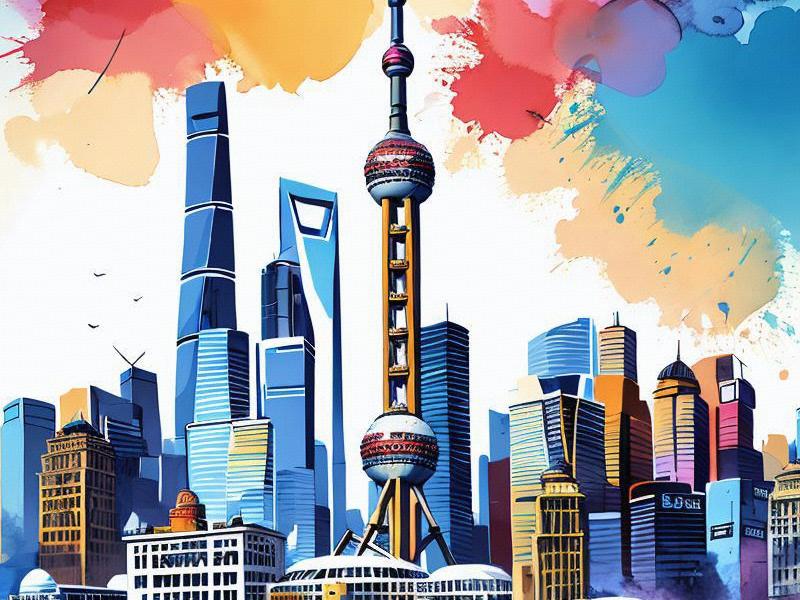
Nestled along the banks of the Huangpu River, Shanghai is a city that seamlessly blends the old with the new. Once a modest fishing village, it has risen to become China's largest and most influential metropolis, a global financial hub, and a cultural melting pot. The city's skyline, dominated by the iconic Oriental Pearl Tower and the futuristic Shanghai Tower, is a visual representation of its rapid development and ambition.
The history of Shanghai is deeply rooted in its strategic location at the mouth of the Yangtze River, which has made it a key port for trade and commerce for centuries. During the 19th century, the city became a treaty port, opening its doors to foreign trade and influence. This period saw the construction of the famous Bund, a waterfront area lined with colonial-era buildings that stand as a reminder of Shanghai's cosmopolitan past.
Today, the Bund is a popular tourist destination, offering stunning views of the Pudong New Area across the river. Pudong, once a rural area, has been transformed into a symbol of China's economic prowess. It is home to the Lujiazui Financial District, where some of the world's tallest skyscrapers, including the Shanghai Tower, the Jin Mao Tower, and the Shanghai World Financial Center, are located.
Shanghai's economic success is not limited to its financial sector. The city is also a major center for manufacturing, technology, and innovation. Zhangjiang Hi-Tech Park, often referred to as "China's Silicon Valley," is a hub for high-tech industries and research institutions. It has attracted numerous multinational corporations and startups, contributing to Shanghai's reputation as a global innovation leader.
上海龙凤sh419 The city's commitment to innovation is evident in its efforts to promote smart city technologies. Shanghai has implemented various initiatives to enhance urban living, such as intelligent transportation systems, digital government services, and sustainable energy solutions. The city's smart city projects aim to improve the quality of life for its residents while reducing environmental impact.
Culturally, Shanghai is a vibrant city that celebrates its heritage while embracing modernity. The city is known for its unique blend of traditional Chinese culture and Western influences. The Yu Garden, a classical Chinese garden built in the Ming Dynasty, offers a glimpse into the city's rich history. In contrast, the French Concession, with its tree-lined streets and historic architecture, reflects the European influence that shaped Shanghai's identity.
Shanghai's culinary scene is another aspect that showcases its cultural diversity. The city is a paradise for food lovers, offering a wide range of dishes from traditional Shanghainese cuisine to international flavors. Dishes like xiaolongbao (soup dumplings) and shengjianbao (pan-fried dumplings) are must-tries for visitors seeking an authentic taste of Shanghai.
The arts and entertainment scene in Shanghai is thriving, with numerous theaters, museums, and galleries showcasing both traditional and contemporary works. The Shanghai Museum, renowned for its extensive collection of Chinese art, attracts millions of visitors each year. The city's nightclubs, music festivals, and fashion shows provide a platform for local and international artists to showcase their talents.
上海喝茶群vx Education is another area where Shanghai excels. The city is home to some of the best universities in China, including Fudan University and Tongji University, which attract students from around the world. These institutions contribute to Shanghai's status as a global knowledge hub and play a crucial role in the city's innovation ecosystem.
Despite its rapid development, Shanghai remains committed to sustainability and environmental protection. The city has implemented various green initiatives, such as promoting public transportation, increasing green spaces, and investing in renewable energy. The Shanghai Green City Action Plan aims to make the city more livable and environmentally friendly.
Shanghai's urban planning is also noteworthy, with a focus on creating a harmonious balance between urban development and preserving natural landscapes. The city has developed several urban parks and green belts, such as the Century Park and the Shanghai Botanical Garden, which provide residents with spaces for recreation and relaxation.
爱上海同城对对碰交友论坛 The city's infrastructure continues to evolve to meet the demands of its growing population. The Shanghai Maglev Train, the world's first high-speed commercial magnetic levitation train, offers a fast and efficient mode of transportation. The city's metro system, one of the busiest in the world, connects various parts of Shanghai, making travel convenient for residents and visitors alike.
Shanghai's role in global affairs is also significant. As a member of the World Expo Organizing Committee, the city has hosted major international events, such as the 2010 World Expo, which attracted millions of visitors from around the globe. These events have enhanced Shanghai's international profile and strengthened its position as a global city.
In conclusion, Shanghai is a city that embodies the spirit of China's transformation and ambition. Its unique blend of tradition and modernity, economic prowess, cultural vibrancy, and commitment to sustainability make it a fascinating subject of study and admiration. As Shanghai continues to grow and evolve, it remains a beacon of innovation and a symbol of China's rise on the global stage.
